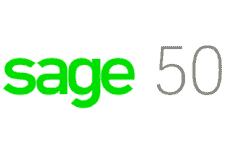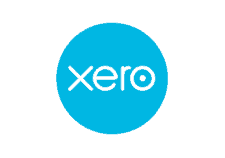After our recent podcast with Stephen Kinch (Kalc Accounting), we at Livecosts thought that it was worth digging a little deeper into this topic.
Stephen has been very kind to spend time putting together this detailed blog for our readers.
He discusses choosing the right construction accounting software for your business, as well as what is the best accounting software for contractors.
“Managing and tracking your income and expenses is vital for running a business, but it is too often labor intensive & time consuming. Day to day invoicing and receipts & mileage tracking is inefficient, particularly if the business is not availing of the most up to date technology & software.
For some, the fear of software costs & complicated packages can be a constraint on their decision to change or update their accounting software. However, at Kalc Accounting we are positive that with the variety of packages available, there is something to suit every business, leaving you with more time to actually do business.
Also, given that most accounting systems have updated to cloud-based systems, accounting software fees have become significantly cheaper in recent times.
The internet is an extremely large database. It can be incredibly confusing when researching accounting software options. It is very important to firstly, identify what features you might be looking for & identify how your business systems are currently working.”
A good starting point is to look at the basics
What considerations should you take firstly when choosing a software package?
Is it User Friendly
What devices do you need access on? Desktop, mobile, I-pad? How is my current software performing? Am I able to work remotely from any location?
Integration
This can be a very important consideration. Does your business rely on other software’s such as a CRM platform or inventory management? Is your accounting software able to integrate with additional software’s? What would you like your accounting software to integrate with? Does my accountant have easy access to my financial records?
Reporting capabilities
The essentials you need to view your business functions. Assess what reporting functions you rely on most (sales in regions, expenses, management accounts, KPI’s)
Currencies
If you operate in multiple currencies, do you manage this through multiple systems? Is it a time-consuming task to manage multiple accounts? Does your current accounting package cover this?
What benefits can I obtain by upgrading my current accounting system?
Once you have identified the general functions & capabilities of your current software, you can start to look at the benefits of updating or migrating to a more efficient construction accounting software system.
Efficiency
You can save hours of data entry each week by having a streamlined and efficient software in your business. Your bookkeeper and accountant would be also be pleased, freeing up their time. You could save on your accounting fees and create added value by focusing on more proactive accounting advice such as financial and tax planning.
Pricing
Accounting software’s can be extremely competitive – particularly cloud-based ones. Pricing is very affordable. You will probably feel like you are saving money by the time you can free up.
Accessibility
View your financial records from any device in any location. If you upgrade to cloud-based, all you need is internet access to manage your accounts.
Tailored Fit
While accounting software is used by hundred’s of thousand of businesses, you can tailor your software to work in a way which is best for you. You can add-on different functions & capabilities and integrate with your other business software’s. Your accounting software might just even provide the functionality that you were relying on with a completely different system such as CRM or cash flow management.
Data & Back Ups
Peace of mind can be assured knowing that you do not have to worry about backing up all your data. This will be stored automatically used cloud-based technology. Even desktop software’s are available with a hybrid-cloud integration, so your data backs-up onto their cloud-based server rather than your own.

vs

Xero and Sage are two of the best accounting software providers for SME’s. They can both provide pretty much all the benefits listed above & more. So which software should I go for?
The good thing is you cannot go much wrong with either. They both contain an abundance of features that make your accounting functions streamlined. Information can be obtained “live” and business reports can be obtained in real-time. So, head to head, how do we rate them?
Users
Sage can charge extra for additional users in certain packages. With Xero, you can dictate how many users and accessibility your staff have at no additional cost. This can also be important for Accountant integration. If your accountant doesn’t have a client manager account with Sage, they would use up one of the user subscriptions if given access to a clients account. With Xero, this isn’t a problem. Your accountant’s access is easily integrated.
PICK A WINNER ON THIS TOPIC – XERO
Niall from Livecosts says: I have found Xero’s permissions very easy to use and with no extra cost to worry about per user its hard to argue with Xero here.
Integration
While both software’s can integrate effectively with many different systems, there is a never-ending list of third-party applications Xero can integrate with.
Sage tends to focus more on integrating with Sage products such as Sage Pay. They also heavily promote their integration with Office 365. With saying that, they do integrate with other third-party applications, but the list is not quite as long as Xero’s.
PICK A WINNER ON THIS TOPIC – XERO
Niall from Livecosts says: Livecosts integrates with both Xero and Sage 50 & Sage Business Cloud. Xero have a very modern approach to integration and assess all 3rd parties to ensure Xero users get a quality integration. Sage 50 being a desktop application is very difficult to integrate with and in turn software companies tend to avoid. Xero here all the way, but an mention for Sage business cloud who are definitely moving Sage in the right direction.
Bank feeds
Both Xero & Sage offer the bank feeds functionality. Rules can be created on both software’s so re-occurring transactions are automatically reconciled. One slight advantage is Xero can link to TransferWise for multiple-currency accounts. This would be extremely beneficial for business operating in multiple currencies.
PICK A WINNER ON THIS TOPIC – XERO/SAGE
Niall from Livecosts says: Xero for me again as we use it not just for our bank feed but to take payments through Stripe, Pay Pal, and even direct-debits. All easy to set up in my opinion.
Pricing
Sage provides several different products and their fee structures can vary depending on the number of users. With that said, it can be hard to get a transparent pricing fee for comparison. The standard package of $30 per month on Xero is pretty hard to beat with what you get for this. The Sage Business Cloud is €25+Vat per month, coming in at a similar price whereas the Sage50 Cloud pricing for the desktop/cloud hybrid, will cost in the region of €84 + Vat per month.
PICK A WINNER ON THIS TOPIC – SAGE FOR STARTER PACKAGE. XERO IN THE LONG RUN.
Niall from Livecosts says: Hard to argue with that verdict Stephen. I agree.
User-friendly
There’s no question Xero’s focus is on the client’s perspective rather than the accountants. It is extremely easy to use and their support services are 24/7. They are very adaptive and seems they are constantly tweaking based on regular feedback. For anyone switching to Xero for the first time, the feedback is normally exceptional. It does not take long to adapt and get used to this system.
A lot can also be said for Sage and their support services. It might be perceived the Sage50cloud is not as easy on the eye, however the Sage business cloud has a nice friendly look and works well on mobile use.
PICK A WINNER ON THIS TOPIC – XERO
Niall from Livecosts says: Not a fan of Sage 50 here. I do like Sage Business Cloud but again Xero for me.
Verdict
There is no doubt you couldn’t go much wrong with either. For the simplicity of the system, we would have to give the nod to Xero. It is specifically designed for the SME sector and they have done a wonderful job with their systems. They are extremely innovative and constantly updating. The cash coding function when processing a bank reconciliation is wonderful and can greatly assist with large bank reconciliations. Not to mention their Xero App Marketplace is constantly growing, ensuring they are able to integrate with more and more technology so they can continue to evolve with their customers.

Written By: Stephen Kinch kalcaccounting.ie



